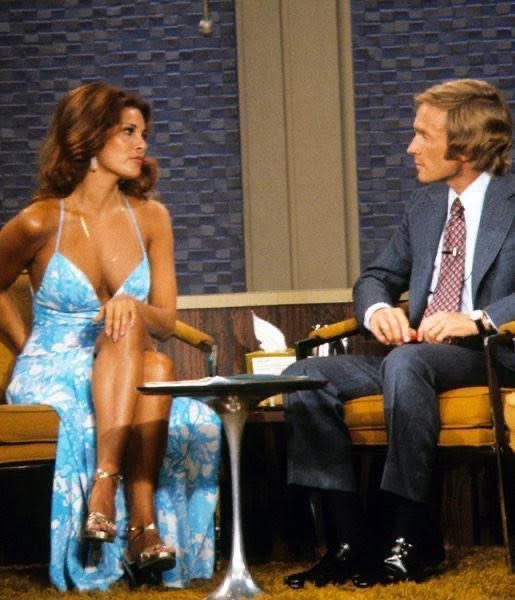The 1975 Oscars: A Cultural Crossroads in Hollywood History
The 1975 Oscars, also known as the 47th Academy Awards, stand as a significant milestone in Hollywood’s illustrious history. This ceremony was not merely an awards show; it was a reflection of the era’s prevailing cultural tensions and societal changes. It was a time characterized by a mixture of glamour and political unrest, capturing both the glitzy facade of Hollywood and the underlying currents of discontent. The images and moments from that night are etched in the annals of history, evoking nostalgia while simultaneously confronting the realities of the time.
The Glamour of Hollywood: An Era of Elegance
Stars like Audrey Hepburn graced the stage, bringing an air of sophistication that seemed almost ethereal. During her appearance, she exemplified the elegance that had come to define the Oscars, leading many to remark, “Back when actors had class.” This comment, however, often overlooks the complexities of the era, including the burgeoning movements for civil rights and anti-war sentiments that were starting to permeate the Hollywood landscape. Hepburn’s charm and grace served as a stark contrast to the growing disillusionment many felt regarding the industry and society at large. Her presence was not only about beauty and talent; it was a reminder of the glimmer of hope that art could provide amidst chaos.
Political Underpinnings: Voices of Discontent
While the stars shone brightly, the sentiments of some attendees were far from celebratory. Dustin Hoffman, nominated for his role in “Lenny,” famously expressed his disdain for the Oscars, labeling them as “grotesque” and “embarrassing.” His remarks highlighted a growing discontent within Hollywood, where many began to question the purpose and nature of such extravagant displays, especially in light of global political turmoil. The Vietnam War, civil rights protests, and economic struggles were pervasive issues that overshadowed the glitz of the ceremony. This skepticism was not limited to Hoffman; it permeated the atmosphere, leading to a disconnect between the glamour of the ceremony and the reality outside its walls.
Controversial Moments and Cultural Commentary
The 1975 ceremony also became a platform for political statements, most notably when the documentary “Hearts and Minds” won the award for Best Documentary Feature. The film’s director, Bert Schneider, made headlines by reading a telegram from a Viet Cong ambassador. This bold move incited a wave of outrage among attendees and viewers alike, prompting a swift response from emcee Bob Hope who later drafted an apology that was read by co-host Frank Sinatra. Such incidents incited important discussions about the responsibilities of artists and the media’s role in reflecting societal issues. The awkwardness of the moment was further exacerbated by snarky quips from fellow stars like Warren Beatty and Shirley MacLaine, highlighting the deep divisions and differing perspectives within the industry. It was a moment that underscored the Oscars’ dual role as both a celebration of cinema and a forum for political discourse.Bittersweet Victories: The Complexity of Awards
In a night filled with mixed emotions, Ingrid Bergman’s win for Best Supporting Actress stood out as particularly poignant. Her acceptance speech was marked by humility, as she suggested that the award should have gone to her fellow nominee, Valentina Cortese. This moment was emblematic of the shifting attitudes within Hollywood society. Some observers viewed Bergman’s victory as a form of Hollywood redemption, given her earlier ostracization from the industry due to personal controversies. This moment resonated deeply, illustrating how the Oscars could serve as both a celebration of talent and a reflection of the evolving attitudes towards its stars. Bergman’s ability to navigate the treacherous waters of personal and professional life pointed to larger dynamics at play within the industry.Iconic Images: The Voight and Welch Controversy
One of the most talked-about moments from the 1975 Oscars was the presentation by Jon Voight and Raquel Welch. Their glamorous appearance had the potential for timeless beauty, yet it also sparked significant debate regarding body language and the dynamics of their interaction. Critics have scrutinized Voight’s body language, with many describing it as uncomfortable or problematic, while others argue it captured a charming moment of Hollywood camaraderie. This duality in perception encapsulates the essence of the Oscars that year: a celebration of beauty and talent that was inextricably linked to the cultural tensions of the time. The juxtaposition of their elegance with the underlying discomfort mirrored the broader societal conflicts that were bubbling under the surface.A Reflection of Change: The Oscars Then and Now
The 1975 Oscars serve as a critical reflection of a turning point in Hollywood and American culture. This ceremony not only celebrated cinematic achievements but also highlighted the contrasting realities faced by its stars and audiences. The tensions of that night, marked by glamour, political statements, and poignant reflections, continue to resonate in contemporary discussions about the role of entertainment in social issues. The images captured during that night are not merely nostalgic; they remind us of the ongoing journey of the film industry and society at large, embodying a moment when beauty, controversy, and cultural change all shared the spotlight. The legacy of the 1975 Oscars is a testament to how far we have come—and how far we still have to go.As we look back at the events and personalities that defined the 1975 Oscars, it becomes clear that this ceremony was not just a celebration of cinematic excellence but a profound reflection of the social and political currents of its time. The interplay between glamour and politics stood as a microcosm of a society grappling with change, offering insight into the complexities of human experience as portrayed through the lens of film. Ultimately, the 1975 Academy Awards serve as a powerful reminder that art and activism can coexist, challenging the status quo while simultaneously inspiring generations of artists and audiences alike.

















